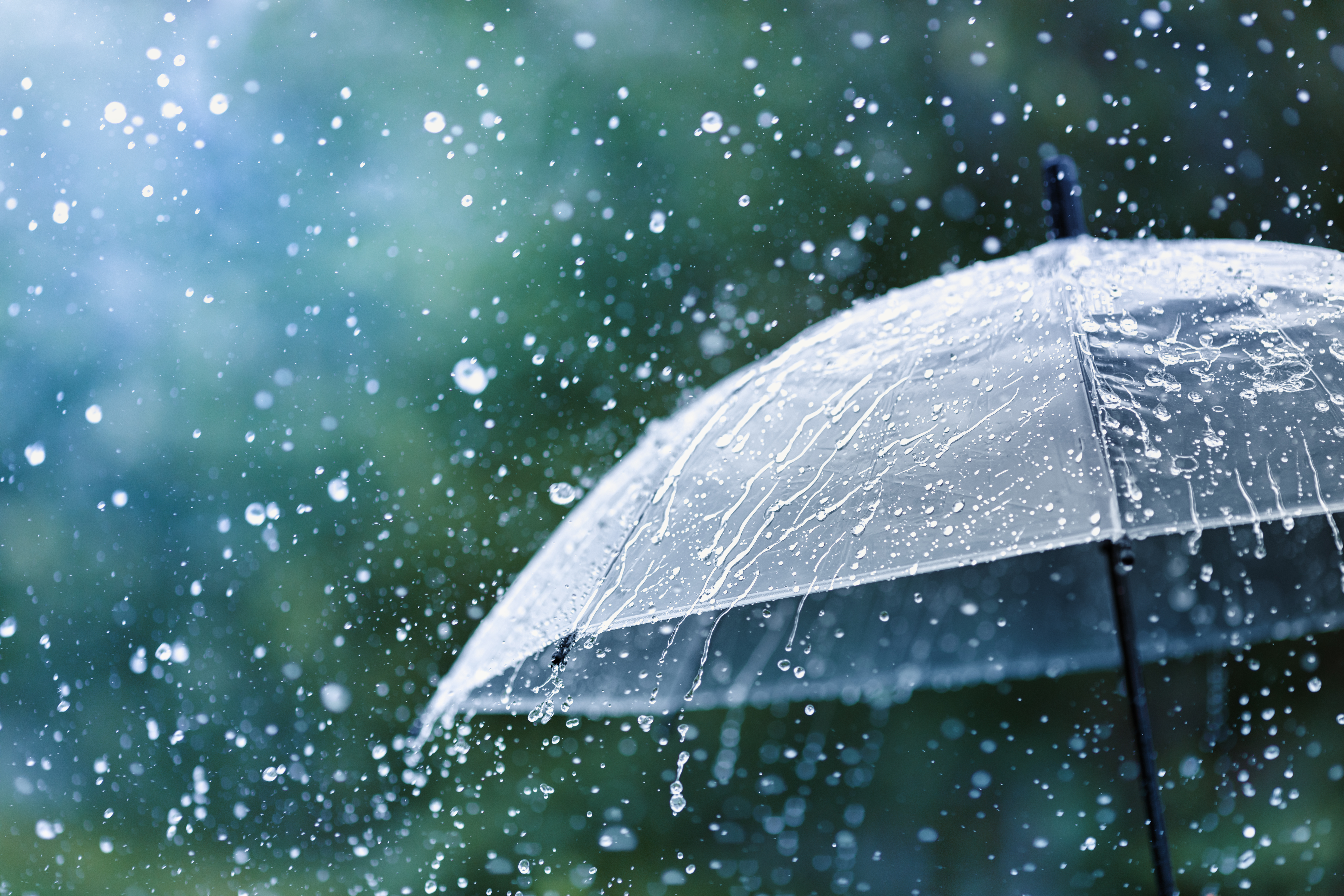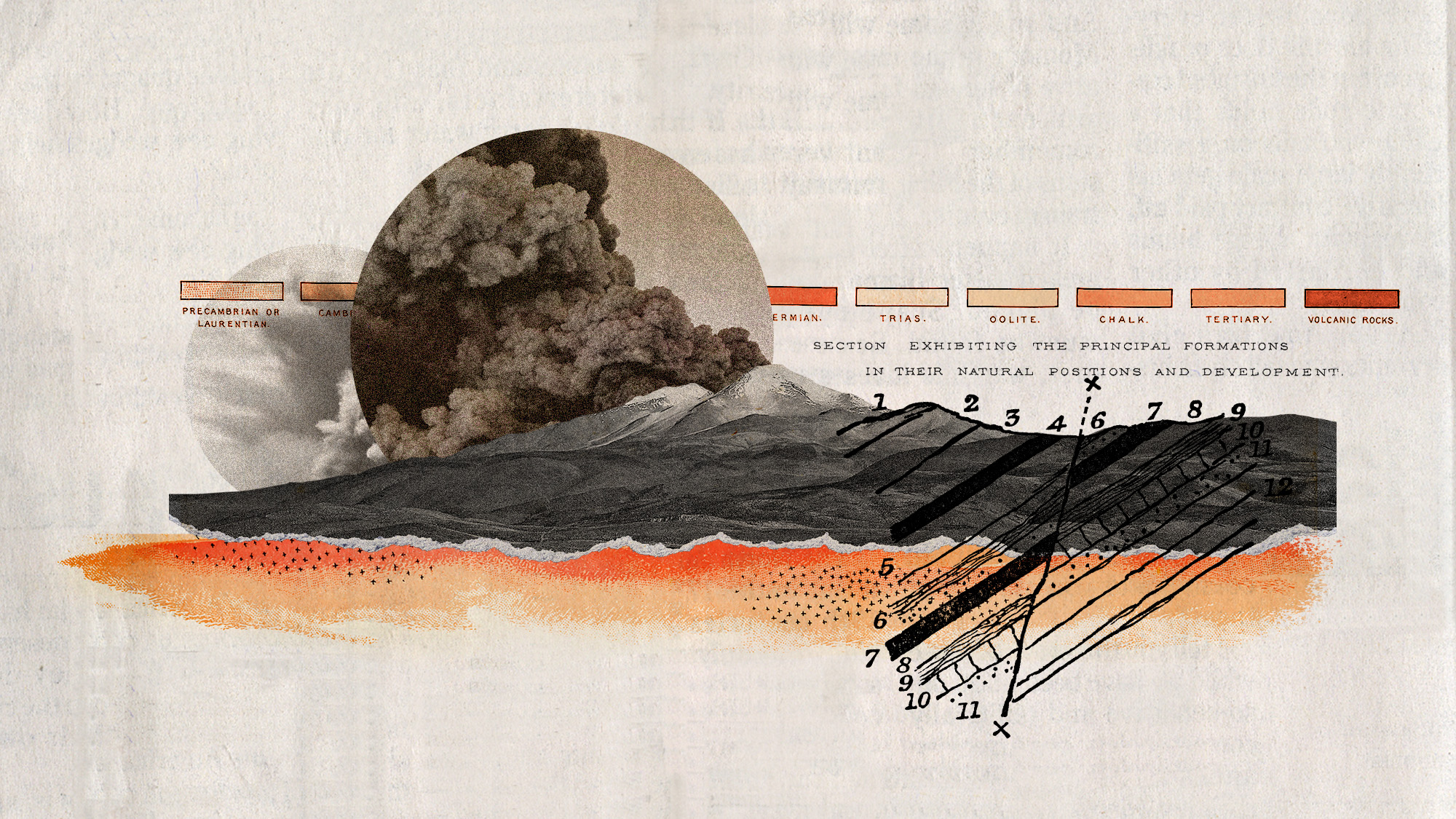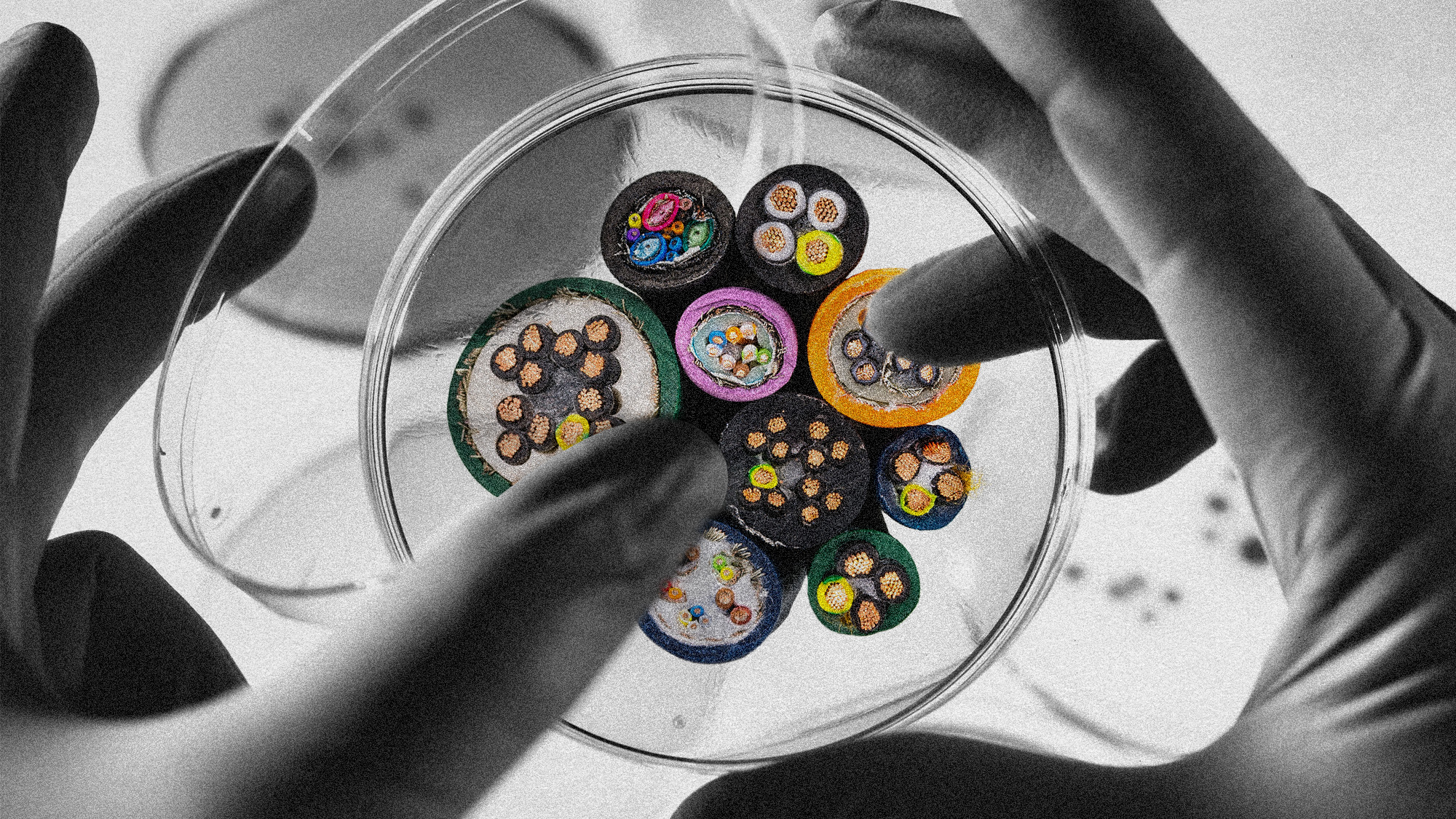How climate change is impacting the water cycle
Rain will likely continue to be unpredictable


A free daily email with the biggest news stories of the day – and the best features from TheWeek.com
You are now subscribed
Your newsletter sign-up was successful
Climate change has caused many ecological and environmental changes including more extreme weather, record-high temperatures and more risk of disease. However, climate change may have also altered the world's water cycle, which dictates rainfall.
What is the water cycle?
The water cycle shows the "continuous movement of water within the Earth and atmosphere" in which "liquid water evaporates into water vapor, condenses to form clouds and precipitates back to Earth in the form of rain and snow," according to the National Oceanic and Atmospheric Administration (NOAA). Rain is pivotal to human society, impacting the weather and agriculture, as well as streams and rivers.
The water cycle has been "extremely stable during … the past 11,700 years," but now "the damage runs deep, but it is still fixable," reported New Scientist. "We've allowed ourselves to think that water is simply something that comes back every year … and we can trust it," Johan Rockstrom, of the Potsdam Institute for Climate Impact Research, told the source. "We must recognize that … we're actually not able to trust the source anymore."
The Week
Escape your echo chamber. Get the facts behind the news, plus analysis from multiple perspectives.

Sign up for The Week's Free Newsletters
From our morning news briefing to a weekly Good News Newsletter, get the best of The Week delivered directly to your inbox.
From our morning news briefing to a weekly Good News Newsletter, get the best of The Week delivered directly to your inbox.
How has it been impacted?
Because of anthropological actions, the water cycle has been "intensifying," causing an "increase in both wet extremes, including more intense rainfall over most regions, and dry extremes, including drying in the Mediterranean, southwestern Australia, southwestern South America, South Africa and western North America," The Conversation stated.
The main reason is rising temperatures that, in turn, raise the "upper limit on the amount of moisture in the air," increasing the "potential for more rain," the source continued. "With those warmer temperatures, it impacts the rainfall patterns, which means through changes in circulation, instead of rain falling where it used to, it is now falling offshore," Dr. Samantha Burgess, the deputy director of the Copernicus Climate Change Service, told Euronews. Weather patterns are changing "more rapidly than we've seen in the past."
In addition, the United Nations declared a global water crisis. "We are draining humanity's lifeblood through vampiric overconsumption and unsustainable use," remarked U.N. Secretary-General António Guterres, "We've broken the water cycle, destroyed ecosystems and contaminated groundwater." In turn, there's "simply not enough fresh water left anymore," added U.N. General Assembly President Csaba Korosi.
What does it mean for the future?
Without limiting climate action, "both wet and dry extremes and the general variability of the water cycle will increase, although not uniformly around the globe," reported The Conversation. It's also important to stick to our "planetary boundaries," according to Rockstrom, which are "global life-support systems we must keep within certain limits to maintain a habitable Earth." Freshwater use is one of them. Warmer temperatures and poor land use have also impacted the land's ability to hold water, reducing the amount of "green water," which is essential to the water cycle. "When we have deforestation, we lose the green water flow."
A free daily email with the biggest news stories of the day – and the best features from TheWeek.com
"The land use has changed and somehow has decreased the possibility for the water to reach the ground," said Dr. Florence Habets, a research director at the French National Centre for Scientific Research, told Euronews. "If you keep some places where water can slowly infiltrate to the soil, some wetlands, let's say, this would be good." It's also important to keep warming to a minimum, as the impacts will only become more severe as global temperatures rise above 1.5 degrees Celsius, north of pre-industrial levels.
"We broke the hydrological cycle," Henk Ovink, the Netherlands special envoy for international water affairs, told New Scientist. "Now we have to bring it back."
Devika Rao has worked as a staff writer at The Week since 2022, covering science, the environment, climate and business. She previously worked as a policy associate for a nonprofit organization advocating for environmental action from a business perspective.
-
 The EU’s war on fast fashion
The EU’s war on fast fashionIn the Spotlight Bloc launches investigation into Shein over sale of weapons and ‘childlike’ sex dolls, alongside efforts to tax e-commerce giants and combat textile waste
-
 How to Get to Heaven from Belfast: a ‘highly entertaining ride’
How to Get to Heaven from Belfast: a ‘highly entertaining ride’The Week Recommends Mystery-comedy from the creator of Derry Girls should be ‘your new binge-watch’
-
 The 8 best TV shows of the 1960s
The 8 best TV shows of the 1960sThe standout shows of this decade take viewers from outer space to the Wild West
-
 How climate change is affecting Christmas
How climate change is affecting ChristmasThe Explainer There may be a slim chance of future white Christmases
-
 Why scientists are attempting nuclear fusion
Why scientists are attempting nuclear fusionThe Explainer Harnessing the reaction that powers the stars could offer a potentially unlimited source of carbon-free energy, and the race is hotting up
-
 Canyons under the Antarctic have deep impacts
Canyons under the Antarctic have deep impactsUnder the radar Submarine canyons could be affecting the climate more than previously thought
-
 NASA is moving away from tracking climate change
NASA is moving away from tracking climate changeThe Explainer Climate missions could be going dark
-
 What would happen to Earth if humans went extinct?
What would happen to Earth if humans went extinct?The Explainer Human extinction could potentially give rise to new species and climates
-
 Bacteria can turn plastic waste into a painkiller
Bacteria can turn plastic waste into a painkillerUnder the radar The process could be a solution to plastic pollution
-
 A zombie volcano is coming back to life, but there is no need to worry just yet
A zombie volcano is coming back to life, but there is no need to worry just yetUnder the radar Uturuncu's seismic activity is the result of a hydrothermal system
-
 'Bioelectric bacteria on steroids' could aid in pollutant cleanup and energy renewal
'Bioelectric bacteria on steroids' could aid in pollutant cleanup and energy renewalUnder the radar The new species is sparking hope for environmental efforts
